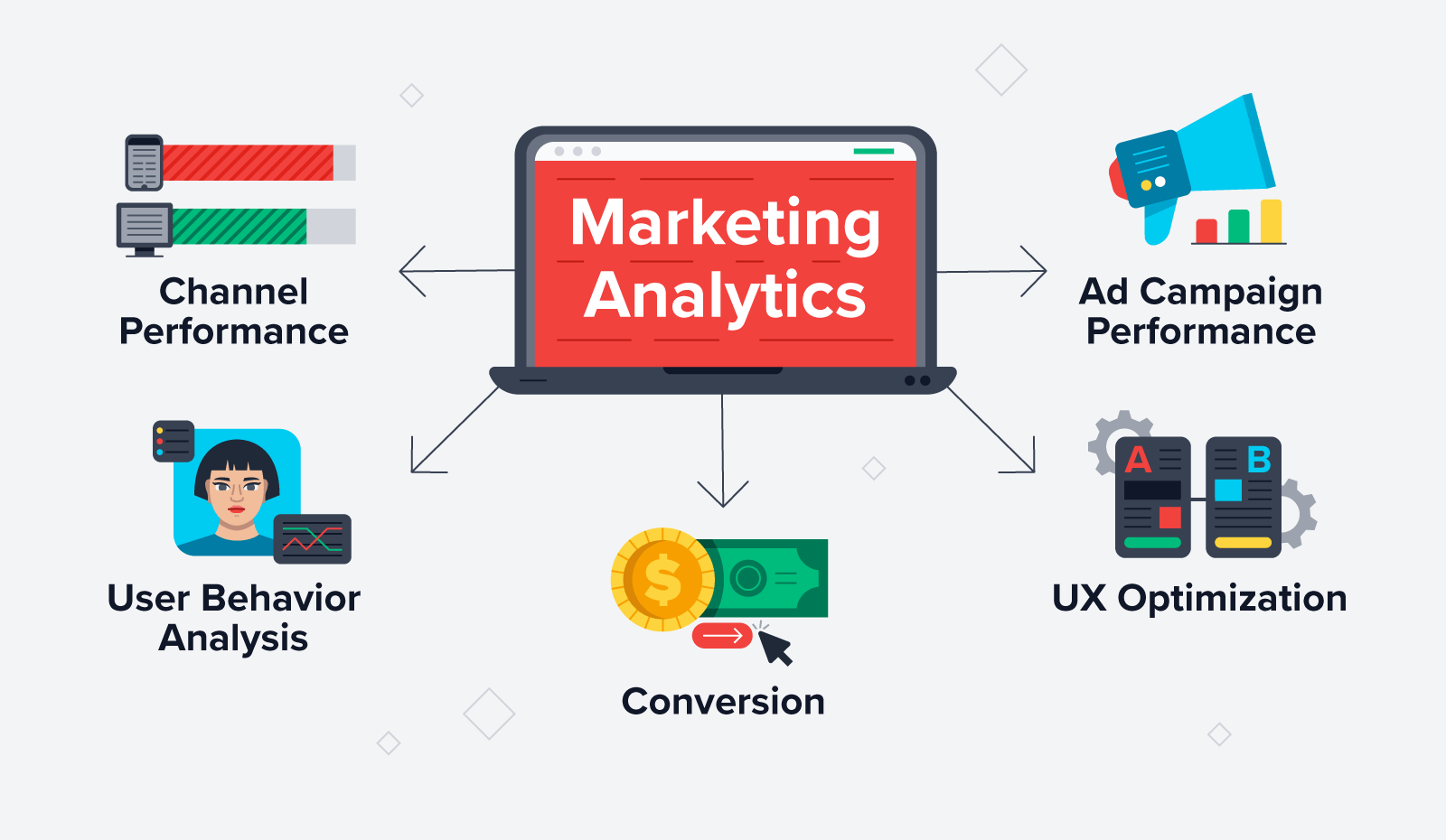Optimize Growth: Exactly How Analytics Drive Better Strategies
By using information insights, organizations can improve their operational approaches, anticipate market adjustments, and enhance customer involvement. The obstacle lies not just in accumulating information however in successfully translating it to drive concrete outcomes.
Recognizing Data Analytics
Information analytics is a systematic computational evaluation of data that enables companies to discover purposeful patterns and insights. This process includes a selection of methods, including analytical evaluation, predictive modeling, and data mining, which collectively aim to change raw information into workable info - Analytics. By utilizing these techniques, companies can make educated choices that are rooted in empirical proof instead of intuition alone
The structure of information analytics depends on its capability to handle vast quantities of details from varied resources. This consists of structured information, such as databases, and disorganized data, consisting of social media communications and customer comments. With making use of specialized software application and tools, analysts can remove and process this information successfully, determining trends and relationships that may not be promptly obvious.
Recognizing information analytics additionally entails identifying the relevance of information top quality and integrity. Exact and trustworthy information is critical for purposeful analysis; thus, organizations have to implement durable data governance techniques. The repetitive nature of analytics enables for continuous refinement and renovation of approaches, ensuring that companies remain nimble in the face of changing market characteristics and customer habits.
Trick Benefits of Analytics

One of the essential benefits of analytics is its capability to give workable understandings. Organizations can promptly assess huge amounts of data, discovering patterns that may not be promptly apparent.
Another substantial advantage is improved customer understanding. Analytics devices make it possible for organizations to sector their target market, track customer behavior, and individualize advertising efforts. This targeted technique not just boosts consumer interaction however additionally drives higher conversion rates.

Implementing Analytics Approaches
To fully understand the benefits of analytics, companies must take on structured strategies for execution. This begins with clearly specifying purposes that line up with broader service objectives. By developing certain, measurable outcomes, companies can focus their analytics efforts on locations that generate the highest roi.
Next, organizations should focus on information administration to make sure the honesty and safety and security of the information being examined. This entails establishing protocols for information collection, storage space, and access while sticking to relevant guidelines. Making certain top quality data is crucial for generating purposeful understandings.
In addition, cultivating a society of data-driven decision-making is necessary. This calls for training staff members to analyze analytics searchings for and encouraging collaboration throughout divisions. They are a lot more most likely to integrate insights right into their daily operations. when groups comprehend the worth of analytics.
Finally, organizations should regularly examine and refine their analytics methods. The landscape of information and innovation is continuously advancing, and remaining versatile will allow companies to leverage new devices and methods successfully. By applying these structured methods, companies can maximize Source the impact of their analytics efforts and drive lasting growth.
Devices for Reliable Evaluation
Effective evaluation counts on a range of devices that help with the extraction of understandings from information - Analytics. These tools can range from straightforward spreadsheet applications to innovative maker finding out platforms, each offering an one-of-a-kind function in the analytical process
Data visualization software, such as Tableau and Power BI, plays an important role in transforming complicated datasets right into easy to understand graphical depictions. These devices allow analysts to identify patterns and trends swiftly, permitting more educated decision-making.
Analytical analysis software, like R and SAS, offers advanced abilities for conducting in-depth evaluations, consisting of over here regression, theory testing, and anticipating modeling - Analytics. These functions empower companies to draw meaningful conclusions from their data, recognizing potential possibilities and risks
Moreover, data source monitoring systems such as SQL and NoSQL databases provide the essential facilities for storing and inquiring big volumes of information effectively. They guarantee that information is organized and obtainable for evaluation.
Lastly, company knowledge platforms integrate numerous information sources, providing a comprehensive sight of organizational efficiency. By making use of these devices properly, companies can boost their logical capacities, enabling them to develop methods that take full advantage of growth and boost total efficiency.
Instance Research Studies of Success
Successful organizations usually leverage data analytics to drive impactful strategies, as shown by numerous remarkable situation research studies. By using these insights, Netflix has actually effectively tailored its material suggestions, resulting in boosted user interaction and client retention.

Furthermore, Starbucks uses information analytics to establish optimal shop locations and refine its item offerings. By taking a look at client demographics and buying patterns, Starbucks successfully identifies high-potential markets and customizes its menu to local preferences, driving sales and client loyalty.
These study illustrate that efficient usage of information analytics can result in calculated benefits, fostering advancement and development within organizations across numerous sectors.
Conclusion
In final thought, the integration of analytics into business approaches substantially boosts decision-making procedures and promotes sustainable development. By leveraging data-driven insights, organizations can recognize trends, prepare for market changes, and maximize operations. The reliable execution of analytics devices even more supports dexterity and development, making it possible for companies to browse affordable landscapes with greater precision. Ultimately, a commitment to analytics not just drives instant efficiency renovations yet likewise secures long-term success in an ever-evolving market.
Data analytics is a systematic computational analysis of information that allows organizations to reveal purposeful patterns and insights.Comprehending information analytics also involves identifying the value of information high quality and integrity. Dependable and precise data is critical for meaningful analysis; therefore, companies must implement robust information governance techniques.Next, companies must focus on find this information administration to ensure the stability and protection of the data being assessed.Successful organizations usually leverage information analytics to drive impactful techniques, as shown by numerous notable situation studies.